The journey of Praggnanandhaa and Vaishali through their mother's eyes
On the 8th of August, Pragg gave a simultaneous exhibition at the IMC office in Mumbai. His mother, Nagalakshmi, was also present there. Amruta Mokal seized the moment to speak with her, and what followed was a special interview where Nagalakshmi opened up about the journey of raising India’s golden siblings of chess, Praggnanandhaa and Vaishali. She revealed the amount of planning and support that goes into nurturing world-class talents. Read the article to know how your favourite players started their journey and rose to where they are today. Photo: Amruta Mokal
The book I carried without reading!
When I was little, my parents often spoke to me about a book called "Shyamchi Aai" (Shyam's mother). At first, I never understood why they kept bringing it up. They would mention it whenever I was mischievous or didn’t behave well. After hearing it so many times, I could not help but ask them, "What’s really in this book that you keep mentioning again and again? I want to know.” That's when they told me, the book was about a mother’s profound influence on her son, Shyam (the writer, Sane Guruji). They even narrated a couple of scenes to give me a glimpse of what it contained and why I must read it. I understood then that it was a tribute to a mother’s love. I had also heard from many others that it was a great book. And yet, for some reason, I never made the effort to actually read it.
As the years passed, the book slowly slipped from my memory... until 2023, when I came across this video (Credits: Chesswithlokesh). All those reminders from my parents came rushing back. After seeing these visuals, I felt I understood the essence of the book, without ever having read it.
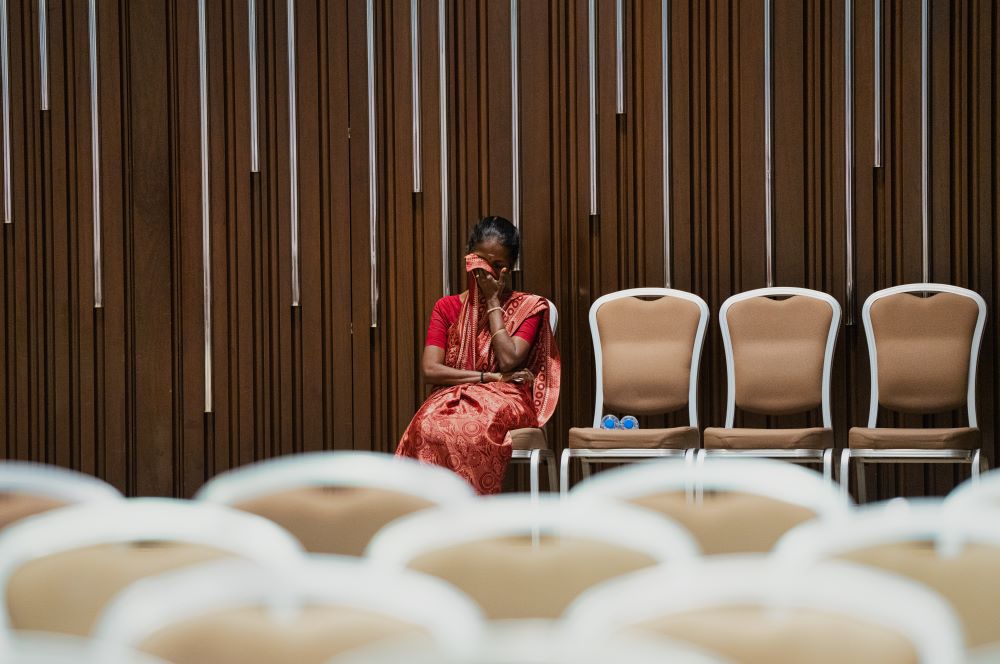
This was the moment when "Shyamchi Aai" came alive before me, in the real-life story of a chess mother. What does it take for a mother to nurture a talent? This super mom has raised not one but two extraordinary players - Praggnanandhaa and Vaishali. We all celebrate their victories. We all admire their brilliance on the chessboard. We have tried to cover their journey before as well, but this time, it was Nagalakshmi herself who opened up with stories about the golden siblings of Indian chess. Pragg recently gave a simul at the IMC office in Mumbai, where Nagalakshmi was also present. Amruta Mokal and Kartik Krishnan sat down with her for this special interview, just before Pragg's simul. Check out the full transcript of the interview:
Amruta: Nagalakshmi, can you share the journey of Praggnanandhaa and Vaishali? How did they start playing chess? What made you think they should take it up, and where did it all begin?
Nagalakshmi: Hi Amruta! First, Vaishali. Vaishali used to watch a lot of TV. Pogo channel, Chutti TV, she would watch some cartoon channels all the time. So, in order to divert her attention, we put her in Chess, Drawing, and Yoga classes for 3 hours post-school, and made her schedule busy. From all of this, she started performing well in Chess within 6 months. We found her a coach. That’s the reason Vaishali became a Chess player.
When Vaishali was working, Pragg, who was 2 years old at the time, would keep disturbing her. The chessboard and the pieces became a toy for him, and that’s how Chess entered our family.
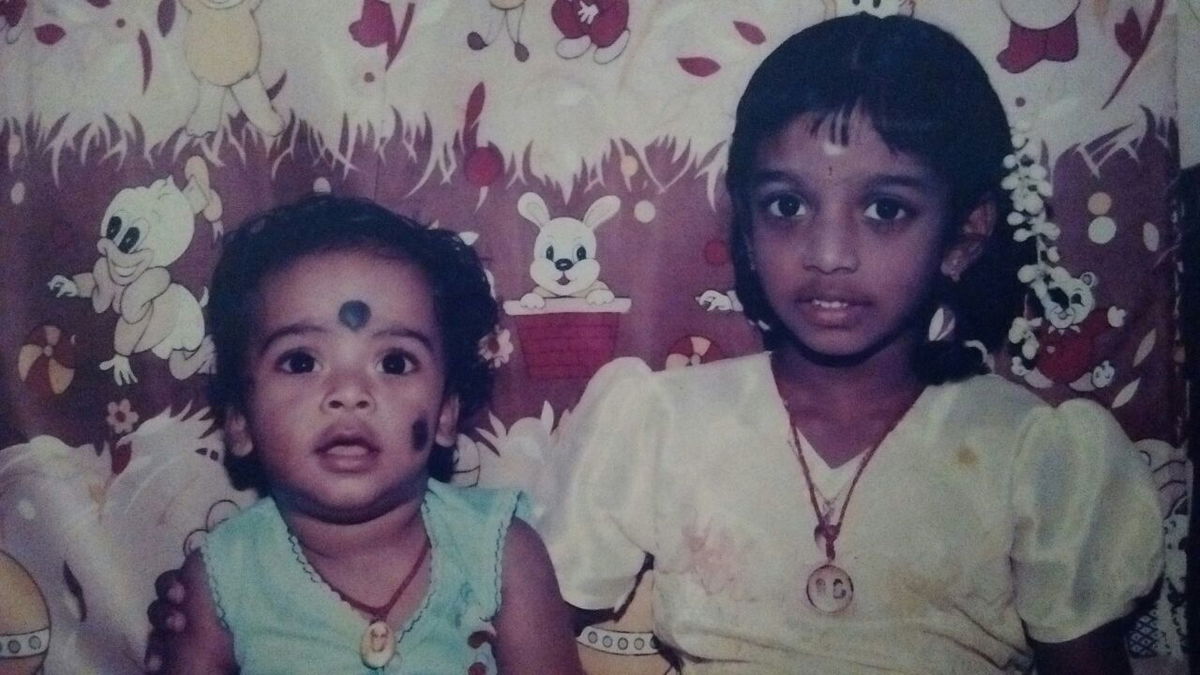
A: So you had planned for Vaishali, but Pragg also joined in! (Nagalakshmi laughs) Then, how did you decide to put them in serious chess classes?
N: The coach would come home and teach Pragg because he was too young, 2-2.5 years of age. So, travelling by bus to take him to class was not possible. Hence, his classes would happen at home only. Class timing would be just 15 minutes, because at 2-2.5 years, he could sit only for 15 minutes. So, whatever he could grasp in 15 minutes was what he learnt. We would never really compel him. Class would last just 15 minutes or 30 minutes. He would get tired after that, and we would also let him be. Once he got tired, he would pick up a ball. 15 minutes of chess and 15 minutes of playing with a ball. He would play with a ball in the hall. That’s how it started; we never forced him to learn chess.

At the age of 5, he started playing district and state tournaments. Under-7 state tournament, he would participate at the age of 5. When he was 4-5 years old, he would solve positions for half an hour. He wouldn’t work on openings. He would solve positions for half an hour, and play with a ball for half an hour. He would then come back and solve positions for half an hour, and then go back to the ball. His coach would give him homework. He would give him photocopies of positions to solve. We didn’t buy books back then. Therefore, he would have to finish the photocopied sheets as homework. If he finished the homework, his coach would give him a gift like toy cars. In order to get those cars, he would solve whatever number of positions that he was tasked with: 30, 40, 50 positions! For half an hour, he would do the positions and then half an hour with the ball.
He couldn’t work on chess continuously because he was just a child. They both had the same coach. For Vaishali, the gifts used to be a pen. Even Vaishali was given gifts for solving the positions. She ended up winning a lot of State and National titles, and the coach would really encourage her. Through all of this, Chess became very interesting for them. The habit of working every day at home was inculcated. The class timing would be just 1 hour. But they used to practice a lot with the board and the pieces at home. To get the gift that their coach would give them, they would sit and finish their homework and go back to class. We never forced them to sit and solve their homework. "We want to collect the gift from the coach." This thought motivated them to finish their work.
A: But did it happen because of the gifts? Like, if there were no gifts later, would they still practice?
N: At a young age, the gifts would motivate them. By the time they turned 9, the motivation was that we needed to play well. We want to finish in the top 3. If we want to participate in the nationals, we need to finish in the top 3 in the state. If we finish in the top 3 in Nationals, then we can go to the Asians or the World Championship for free. Therefore, that became the goal. They would be motivated to work by themselves.
A: When Pragg won the first Asian U-8 Championship, did you expect that he would win?
N: No. Pragg won the Asian U-8 when he was 7 years old. We took him there just for the experience. The first Asian was in Sri Lanka. He stood first in the nationals and got selected. Because of that, everything was free for us, including the tickets. So, we thought we should just go and see. It was our first time experiencing flight travel. But we got there, and he ended up winning the gold. Even Vaishali, at the age of 11, won the U-12 gold at the Asian. Both of them won the Asian gold at the same time. They both realised that we must work hard.
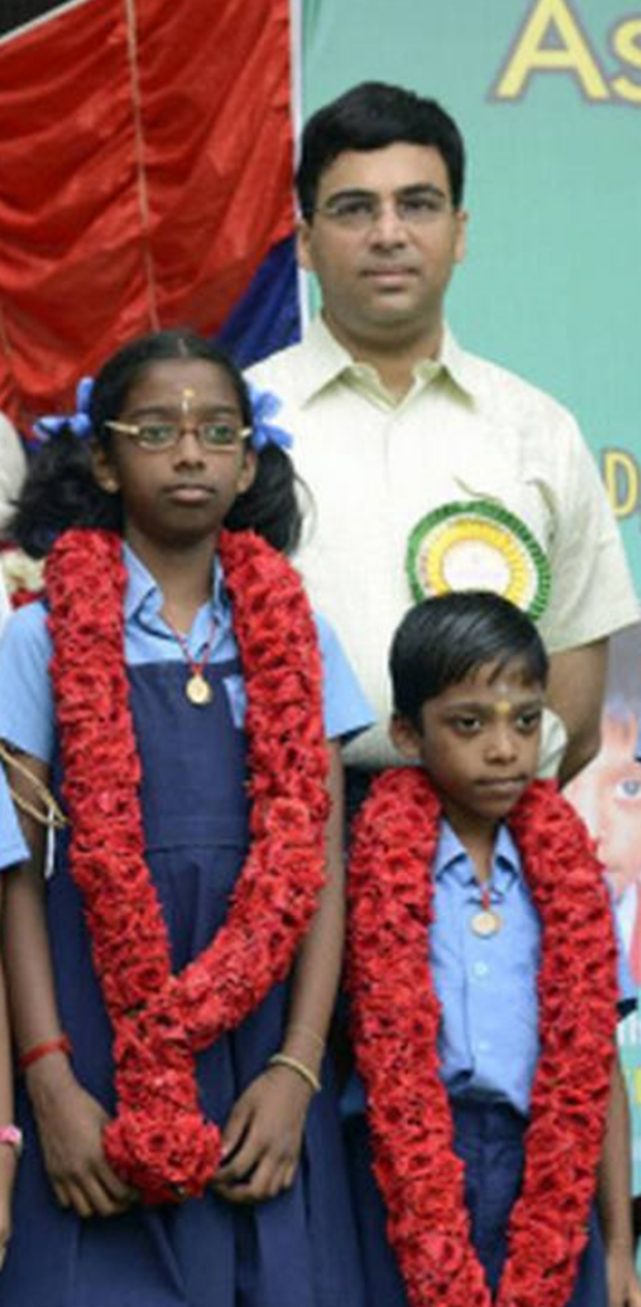
A: Were Pragg, Vaishali, and you scared because it was your first time flying?
N: No, we weren’t really scared. Vaishali and Pragg travelled with their teams. We travelled separately on a different flight.
A: Then you understood it's getting serious, and you were ready to travel. Because you may not have planned that they might become strong players. It was new for you, and you were fine with that?
N: Yes. (Smiles)
A: And then?
N: The first Asian was in Sri Lanka, and the first World Championship was in Slovenia. How to go, how to manage the time difference in Europe, we knew nothing. Pragg was playing U-8. Whenever we need to go to Europe, we need to adjust the sleep schedule 10-15 days before, in order to play well there. For the first World Championship, we had no plan. I didn’t have any idea, so I just took him as is. When we went there, the first 3-4 hours, he would play well. But, in the end, he would fall asleep. During the U-8 World Championship, I would watch on the screen as he would be very sleepy. The first World Championship passed like this. After this, I trained his sleep cycle in advance when he had to travel to the next World Championship, and he won Gold!
A: Wow! That was amazing planning by you, also! Because it requires a lot of thought to put in, off the board, whatever you can prepare, you're doing that. Also, how did you manage the food when you were travelling to Slovenia?
N: For the first trip to Europe, I prepared all the food. I took the cooker along with me, and would feed him whatever I would cook. Because he was very young, he was not used to eating outside food.
A: And after that, you decided already that he will have career in chess? Or what was the next thing that happened?
N: We never had any plan that we need to put them in Chess. It was also very difficult for us to take them both together. There came a time when we thought that when Pragg gets to the age of 10, we would need to stop his Chess journey. This is what we had planned, but seeing him do so well, we didn’t have the heart to stop his journey. We faced a lot of struggles during this time. Around the age of 10, he became an International Master. Then we got sponsors. Which made it much easier for us to continue till today.
A: By that time, Vaishali was also equally into chess. So you knew both the kids were going to play chess. When did you meet Ramesh sir?
N: Pragg was around 9, and Vaishali was 13. Till then, they were working with another coach. When they reached a certain standard, we had to change their coach; that’s when we went to Ramesh sir. First 7 years, it was a different coach- Thiyagrajan. His class would be for 1-2 hours. We used to go to his house. We would walk for 1 kilometer and then take a bus and travel for 2 hours.
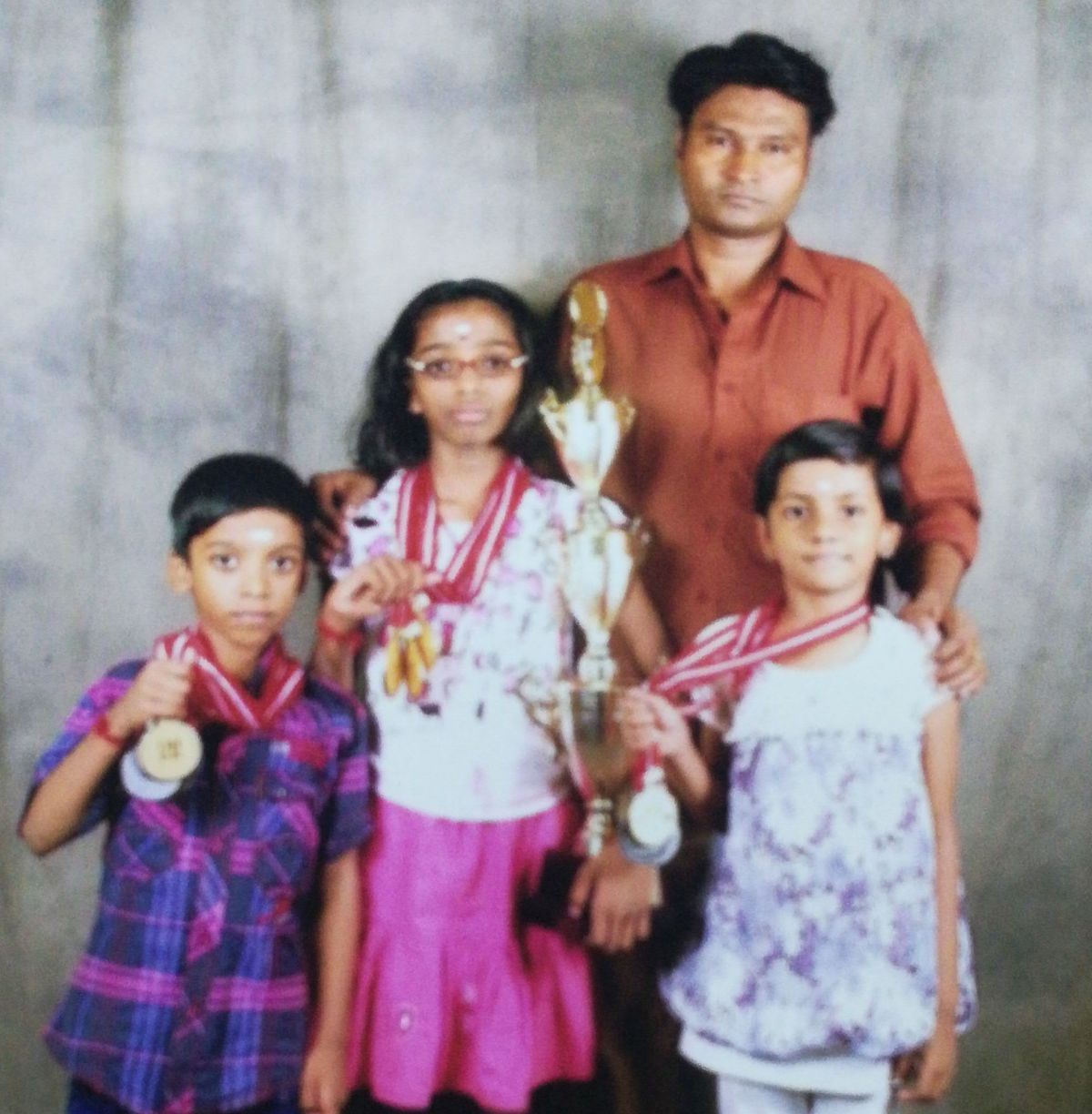
A: But he never complained about walking for 1 kilometer?
N: He used to enjoy it.
A: How many hours were then?
N: Ramesh sir’s classes were also far. We had to travel for 1 hour. Thiyagrajan sir was half an hour away.
A: And how long would they practice for?
N: During tournaments, according to the sir’s schedule. Sometimes a full-day class, sometimes a 2-3-hour class. I would go and drop them off at the class, come back home, and then go pick them up and bring them back home. That was my daily routine.
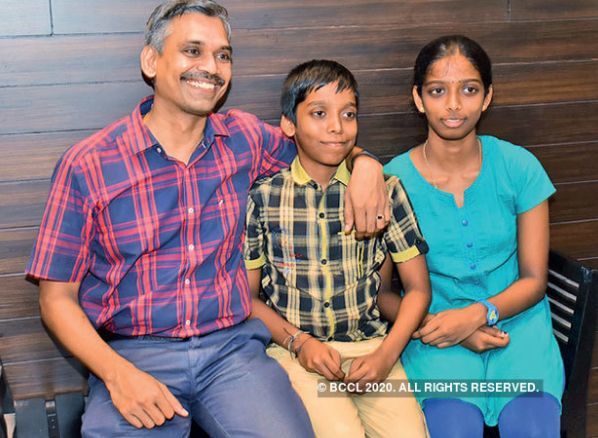
A: Amazing! So they kept going to Ramesh sir for many years, and you used to travel to tournaments. Pragg became a Grandmaster at the age of 12 years 10 months, one of the youngest. At that time, did you imagine that in the coming years, he would be India's no. 1, he would be breaking into the top 10, and so on?
N: There were never such plans. Each and every tournament was important, and the focus was on how to play well and enjoy. There was never a focus on becoming the World number 1 by a certain point in time. The only focus was on the tournaments being played at that moment. There was no point in adding that pressure. It would have made things very difficult under that pressure.
A: Actually, what you are saying is a very important factor as a parent, also. Because Sagar and I have seen Pragg since his childhood, results never pressured him. He is always jolly, smiling, and you are also always smiling, happy. And it never felt like there was some pressure from parents, which is really amazing!
N: It’s God’s gift! (Laughs)
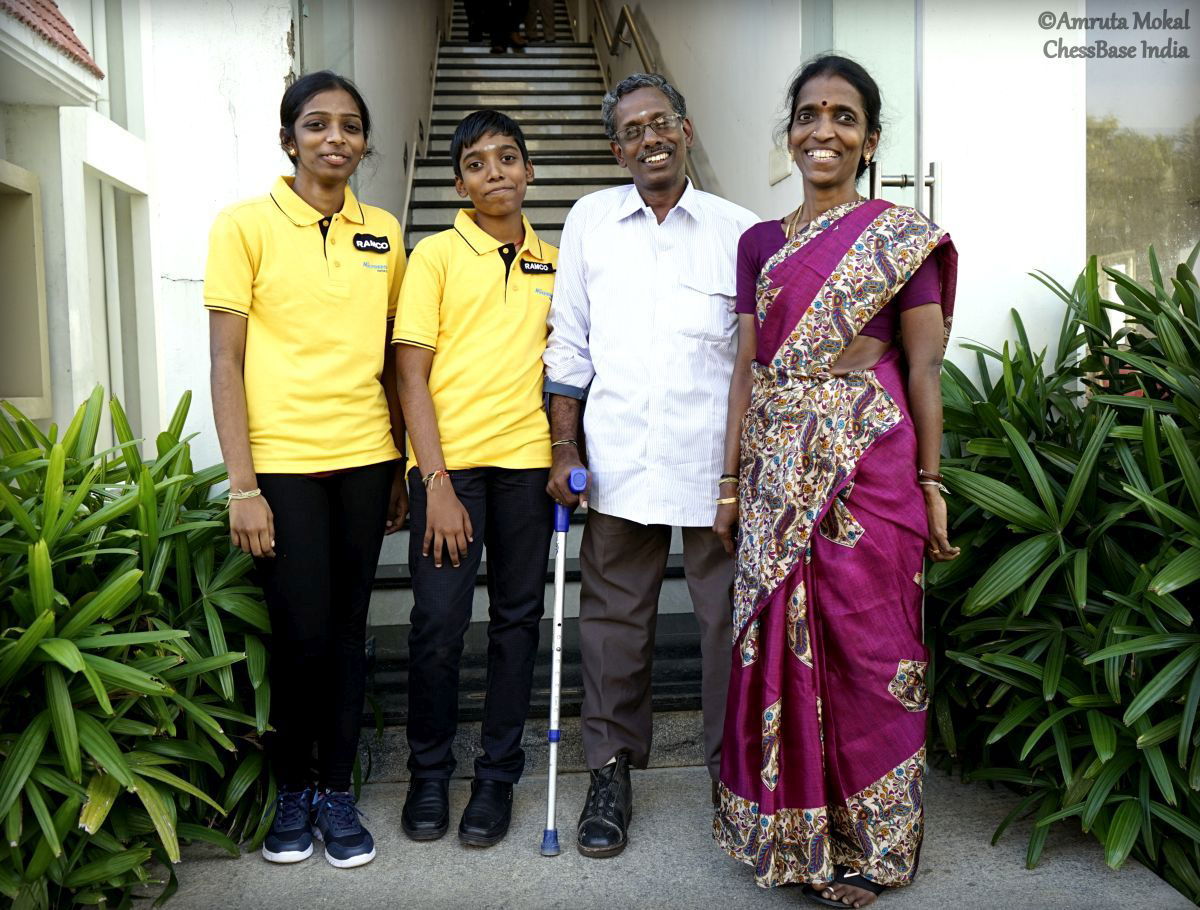
A: Same thing for Rameshbabu also. Like how he was dealing with everything. Because three people outside, travelling, it's not easy.
N: There would always be some pressure, but we would never show that to the kids. We would quickly regain our composure and appear normal to them. Whenever there is a loss, we would be a little upset. But we would instantly mask that and change our demeanor. (We would always tell them) Even though we lost one round, there are still more rounds left. So, if we remain worried about that loss, we would not be able to play the other rounds properly. Hence, we would tell them to forget about today, and let’s focus on tomorrow. It’s okay, move on, and play well tomorrow.
A: While doing that, over a period of years, you also developed that you were not worrying. You are not upset. It was your mental growth as well.
N: Chess is a long journey; if every single time we get upset and pressurized, then it’s impossible to embark on this long journey. Therefore, we have been handling this peacefully.
A: This is great advice for parents. Because many new parents are worried and tense. It kind of puts pressure on the children. Then they end up leaving chess. But Pragg enjoys the game the same way, you enjoy the same way, and all your family. It's definitely something to learn from you. When their journey started, and now they have grown up. Pragg now travels alone so many times. When did it happen the first time that he travelled alone? And how did you deal with it?
N: He has travelled with Ramesh sir only, not alone. Therefore, we didn’t get stressed about him travelling alone.
A: Now he is on his own. Now you trust him.
N: (Nods).
A: We were in Las Vegas, and his bags didn't come. He was pretty relaxed. Were you also relaxed?
N: I was a little worried.
A: When he was not going to school because he was playing in tournaments. Were you worried about his school?
N: No. Both of them have written 10th, 11th, and 12th-grade exams just like other kids. He is also in his first year of college right now. Studies are also balanced on one side. Vaishali has completed her Bachelor’s degree in Commerce and is currently pursuing a Master’s in HR Management. Studies are also being balanced. Pragg is in his first year of college, pursuing a BBA. Bachelor’s in business administration.
A: What are your plans now? Like, how do you see the situation right now for both Pragg and Vaishali? Do you still keep any goals, or do you just kind of flow with whatever it is?
N: No goals as such, but for all chess players, the final goal is always to be the World Champion. The focus right now is to improve the rating. The final goal for us parents, a desire, a dream, an aim, is to see them become World Champions.
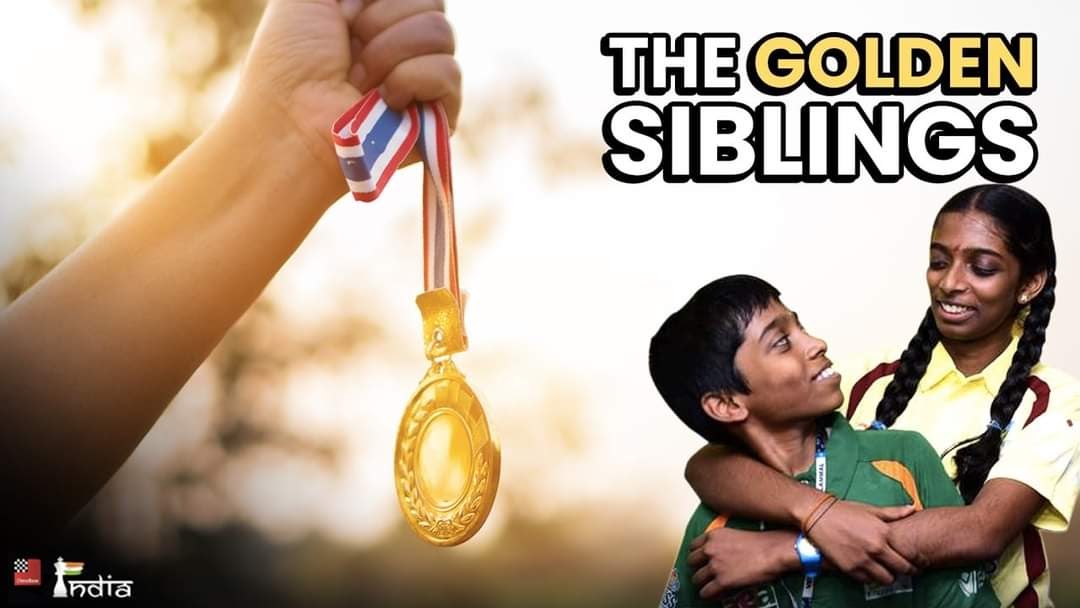
A: That's amazing! Because they have been the first brother-sister pair to become Grandmasters, the first brother-sister to have qualified for the Candidates. They have the potential to become the first brother-sister pair to become the World Champions. It's a beautiful journey over there. You have shared so many of your learnings, as well as those of Rameshbabu. Thank you so much! Because I have seen you also for these many years, and now you are talking with so much confidence. I think it's not only Pragg and Vaishali's journey, but the whole family's. It's a beautiful journey. There is so much joy I can see on your face. You have been enjoying this journey. Thank you so much!
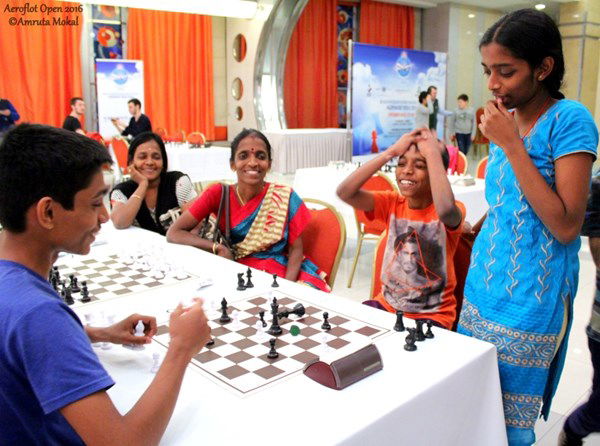
Amruta also asked some fun questions to Nagalakshmi. Check out what she had to say:
A: You cook a lot for Pragg and Vaishali. Your favourite dish that you love to cook for them?
N: During tournaments, mostly Sambhar and rice. At home, Dosa.
A: Do they also know how to make Plain Dosa?
N: Yes! They help me when I feel tired. Both of them help me make Dosas when I am tired.
A: Who makes better Dosa? Pragg or Vaishali?
N: Vaishali.
A: Your favourite tournament that you travelled?
N: The first tournament in Sri Lanka, I really liked. The games and the days were all very good. Both won Gold, too.
A: And do you do any kind of sightseeing during tournaments?
N: No.
A: Do Pragg and Vaishali like to sleep after the tournament is over?
N: Yes.
A: Who sleeps more?
N: Vaishali.
A: Do they fight over the TV remote or anything?
N: When they were young, they used to fight. Now they watch TV only when they eat, so they don’t fight.
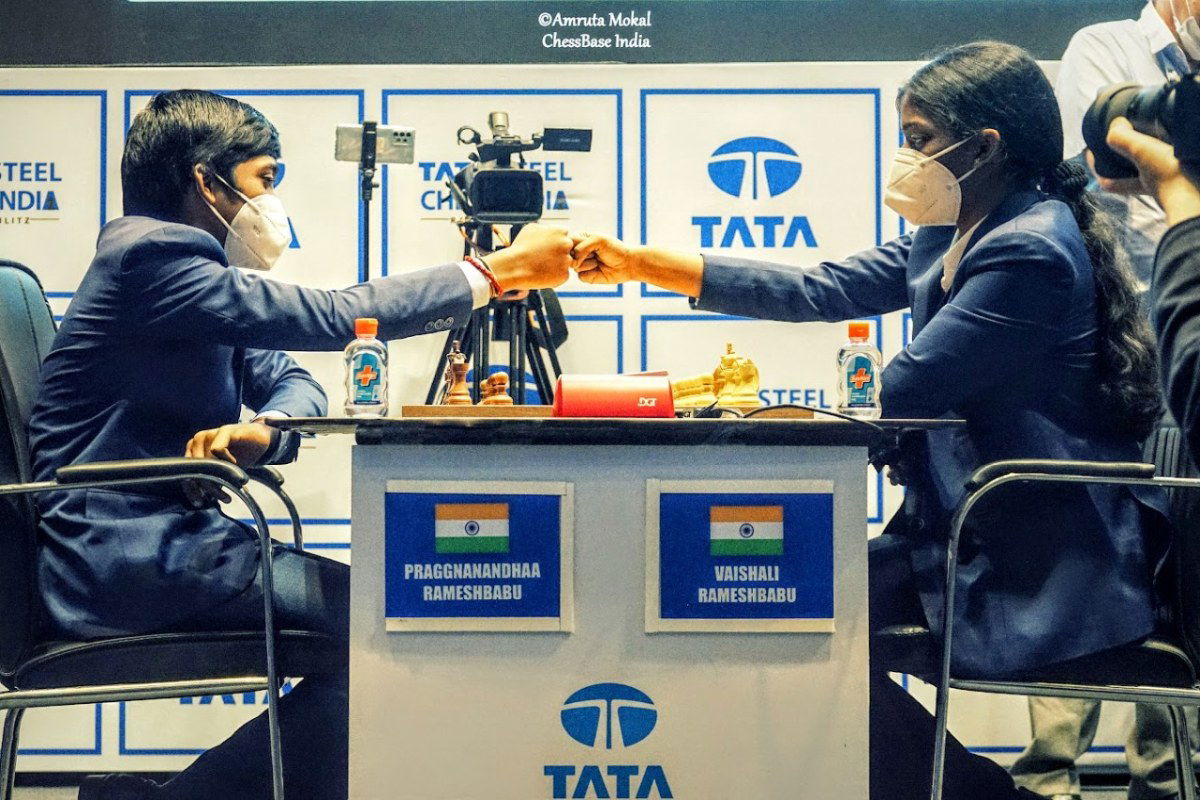
A: Your favourite piece? Bishop or Knight?
N: I don’t know chess at all, so all the pieces are the same for me. I like them all!
A: But did you ever feel tempted to learn chess?
N: No, no. There is no need to learn for me.
A: (Laughs) Thank you so much!
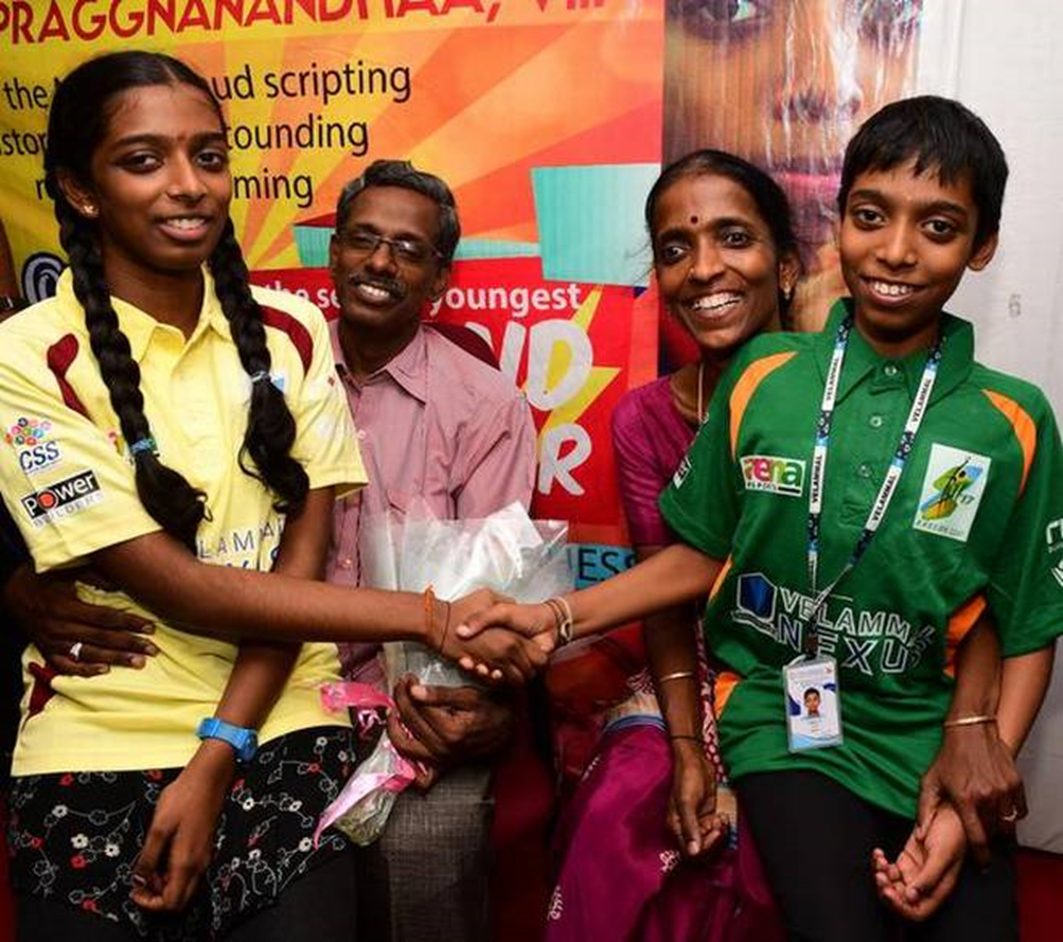
A special thanks to Kartik Krishnan for translating this interview.
Check out the full interview here:














































